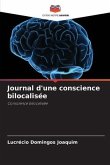In all societies, the phenomenon of begging exists on two levels: begging for lack of food and begging for insufficient knowledge. In fact, beggars due to a lack of food have often congregated on the streets, especially in cities, while beggars due to a lack of knowledge have congregated in libraries and research centres. There is a beggar in every man, and he creates well-located bilocated spaces. The beggars on the street are the great conservators of the spaces of a bilocated consciousness where they expand into other worlds that, in the absence of introspection, can hardly be identified. The work is intended as a social critique, denouncing a social stratum that is excluded and as a result of this exclusion, beggars and worlds are formed within the consciousness as a refuge. Spaces that we all need to explore because they are beyond our reach.
Bitte wählen Sie Ihr Anliegen aus.
Rechnungen
Retourenschein anfordern
Bestellstatus
Storno








